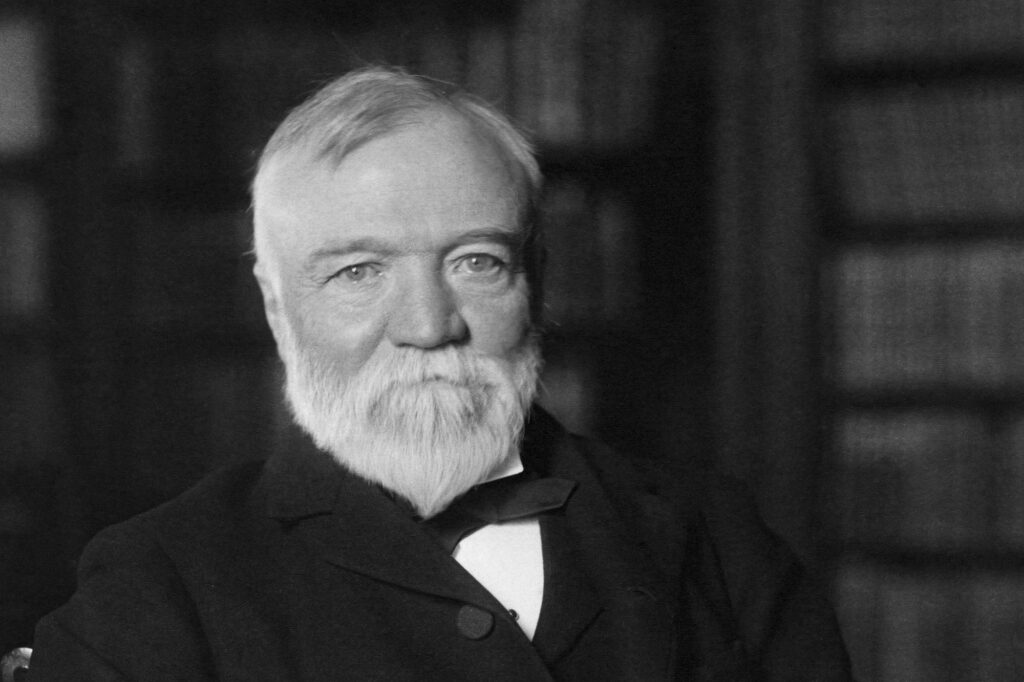The Art of Letting Go
Andrew Carnegie’s leadership philosophy offers a masterclass in delegation and empowerment. By trusting his team and focusing on high-impact activities, he built an empire that thrived on collective strength. Carnegie’s legacy highlights the importance of systemizing success, leveraging expertise, and building trust within teams. Entrepreneurs can learn from his timeless approach to liberate themselves from micromanagement, invest in growth, and foster a motivated workforce. His strategy of empowering others to lead and sharing collective success provides a blueprint for sustainable and expansive business growth.
Carnegie’s story is not just about building wealth but about forging a vision bigger than oneself. The essence of his philosophy is trusting and empowering a team, enabling leaders to focus on growth and strategic endeavors. This philosophy remains timeless and relevant, guiding modern entrepreneurs on a path to sustainable success.
Andrew Carnegie understood the power of releasing control. He knew holding onto every task was unsustainable. To grow, entrepreneurs must delegate, focusing on high-impact activities instead. It’s not surrendering control but freeing oneself to steer the business toward greater goals.
Carnegie emphasized hiring talented individuals and empowering them. This move wasn’t about losing control but liberating one’s focus. By trusting his team’s expertise, he could navigate larger ambitions. Letting go of the smaller tasks allowed for a broader vision and more significant achievements.
Systemizing for Success
Carnegie’s genius lay in his ability to create systems that ran smoothly. His managers reported every morning, yet he avoided micromanaging. Instead, he trusted their expertise to take action. His days were structured efficiently, wrapping up in an hour, allowing him to strategize for bigger goals.
His approach demonstrates that by spending less time on day-to-day operations, leaders can concentrate on enhancing their business. Clear processes and trust enabled his business to thrive independently. This method of working on, rather than in, the business is crucial for growth.
By empowering his managers, Carnegie ensured consistent quality without constant oversight. This approach allowed his ventures to flourish even in his absence. Managers had clear guidelines, bringing reliability to operations. A business that operates on its own is one prepared for expansive growth.
The Power of Expertise
Carnegie never wanted to be the smartest in the room. He valued expertise, letting skilled individuals shine. This mindset created a powerhouse team, capable of exceeding collective expectations.
Delegating complex tasks to experts allowed Carnegie’s business to soar. Each person’s talent was harnessed for the greater good. This strategy amplified the business’s potential far beyond its individual parts.
By surrounding himself with those better skilled in various areas, Carnegie created a dynamic and versatile workforce. His empire’s success was a direct result of leveraging each team member’s strengths.
Delegation as Investment
For Carnegie, delegation was not a loss but an investment in growth. By offloading small tasks, he focused on high-impact decisions. Entrepreneurs should evaluate if their time is spent on minor tasks or on strategic pursuits.
His philosophy turned delegation into a form of empowerment. By reallocating focus to significant matters, businesses can innovate and expand.
Carnegie demonstrated that control need not equate to oversight. Instead, freeing oneself from mundane duties enables innovation and strategic advancement. His approach highlights delegation as a tool for greater focus on impactful actions.
Building Trust with Your Team
Effective delegation hinges on trusting your team. Carnegie invested in his people, ensuring they were well-equipped to excel. Clear systems provided autonomy, fostering a culture of independence.
Trust is the foundation of effective delegation. Without it, team potential remains untapped. By building a supportive environment, Carnegie enabled his managers to contribute meaningfully. This trust nurtured a robust and resilient team.
Celebrating Collective Success
Carnegie believed in sharing credit, boosting morale and fostering loyalty. Acknowledging team efforts creates a motivated workforce. Recognition is not just a boost but an investment in a loyal, motivated team.
His philosophy highlights the importance of valuing your team. When employees feel appreciated, they strive for excellence. Recognition builds a committed and high-performing workplace.
This approach to team management ensures a dedicated and dynamic workforce. By appreciating contributions, Carnegie fostered a culture where success was a shared achievement.
Liberating Leadership
True leadership is about stepping back to let others lead. Carnegie’s legacy empowers entrepreneurs to build businesses that don’t rely solely on them. Success for Carnegie was about empowering others to elevate the company.
His vision allowed him to reclaim time for strategic planning, enhancing business potential. This approach liberated him to focus on growth and vision-setting.
Strength in Numbers
Carnegie’s lesson is clear: A business dependent on one person is limited, but one built on collective strength is boundless. Empowering others leads to unimaginable success.
Entrepreneurs must shift from doing to leading, focusing on empowering their teams. This strategy not only fosters growth but also creates a legacy of innovation and strength.
A Legacy of Empowerment
Carnegie’s approach to leadership remains a blueprint for modern entrepreneurs. His vision of empowered teams proves invaluable in today’s fast-paced business world.
Andrew Carnegie’s principle of delegation and empowerment redefines leadership for modern entrepreneurs. By prioritizing trust and collaboration, businesses can achieve greatness fueled by collective effort.
Source: Entrepreneur





